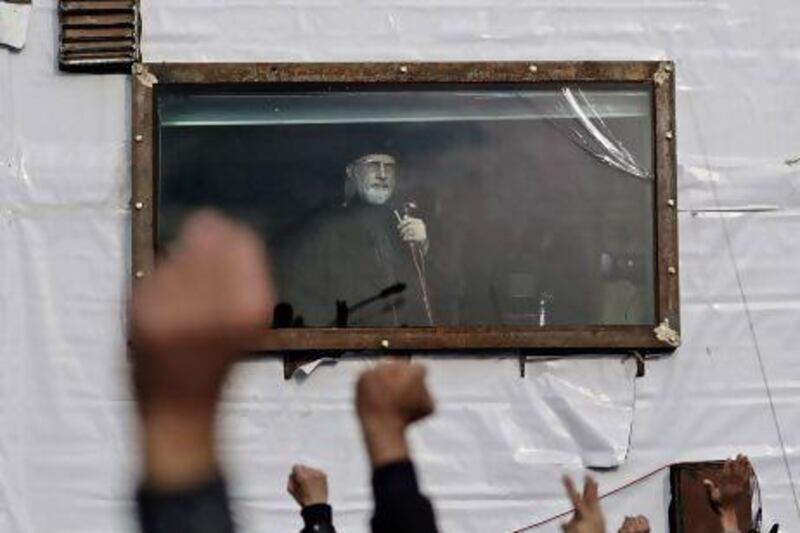ISLAMABAD // Pakistani officials struck a deal yesterday with a Muslim imam to end four days of anti-government protests by thousands of his supporters that largely paralysed the capital and put intense pressure on the government.
The agreement with Muhammed Tahir Ul Qadri was reached after hours of negotiation inside the bulletproof container the religious leader was using at the demonstration site outside parliament.
There was no official announcement of the terms of the deal but it may ease pressure on the ruling Pakistan People's Party (PPP), which has come under fire for failing to tackle a range of problems, from a Taliban insurgency to a weak economy.
According to a member of the negotiating team, the government agreed to the imam's demand to dissolve the National Assembly before its term ends in mid-March, giving 90 days until elections are held.
That would give time to make sure politicians are eligible to stand for election, he said.
The government also agreed that the caretaker administration to be set up ahead of the elections would be chosen in consultation with all parties, the negotiator said.
A declaration laying out the agreement between the government and Mr Ul Qadri was signed by the prime minister, Raja Pervaiz Ashraf, as well as the high-level government officials who made up the negotiating team, an official in the premier's office said.
Thousands of protesters packed into the main avenue running through the capital, Islamabad, danced and cheered when Mr Ul Qadri announced from the container that he had hammered out an agreement with the government.
"I congratulate you. Today is the day of victory for the people of Pakistan. You should go home as peacefully as you came here," Mr Ul Qadri told them.
During his campaign, Mr Ul Qadri's demand that the government be dissolved and replaced by a military-backed caretaker administration raised concerns that he was being used by the nation's powerful army to try to delay parliamentary elections.
The army has a history of toppling civilian governments in military coups and has done little to hide its disdain for the country's politicians.
Mr Ul Qadri denied the allegation. He also demanded electoral reform to prevent corrupt politicians from standing for elections.
Political observers said the 61-year-old imam's negotiations with the government might have enabled both Mr Ul Qadri and the government to save face.
"Qadri knows that he is in a difficult situation after opposition parties rejected his demands," said Hasan Askari Rizvi, an independent political analyst in Lahore.
"This is also a crisis for the government, so they may be able to find a middle way, like an assurance the election commission will carry out scrutiny in line with the constitution to ensure honest candidates."
About 500 metres from the protest venue, the government was fighting a different battle as the supreme court questioned the country's top anti-corruption official on his refusal to obey its order to arrest the prime minister and other officials over alleged corruption in power projects.
The court ordered Mr Ashraf's arrest over allegations of corruption in transactions involving power plant rentals when he was power minister.
Fasih Bokhari of the National Accountability Bureau told the court that investigations of the allegations were incomplete.
The court set the next hearing of the trial for next Wednesday.
* Associated Press, Bloomberg News and Reuters





